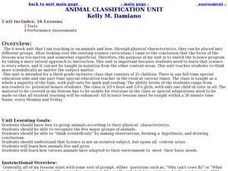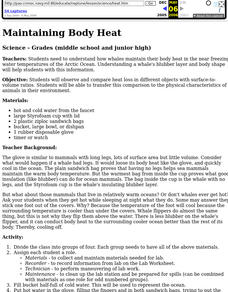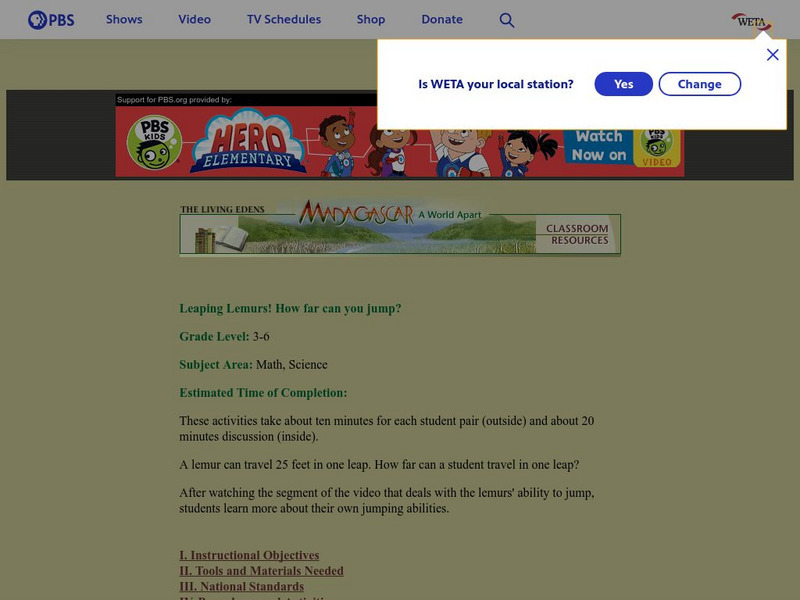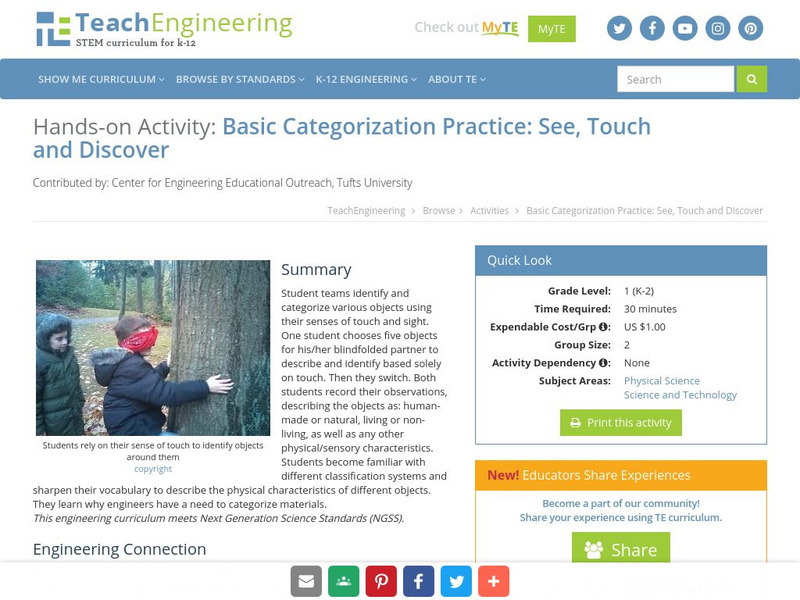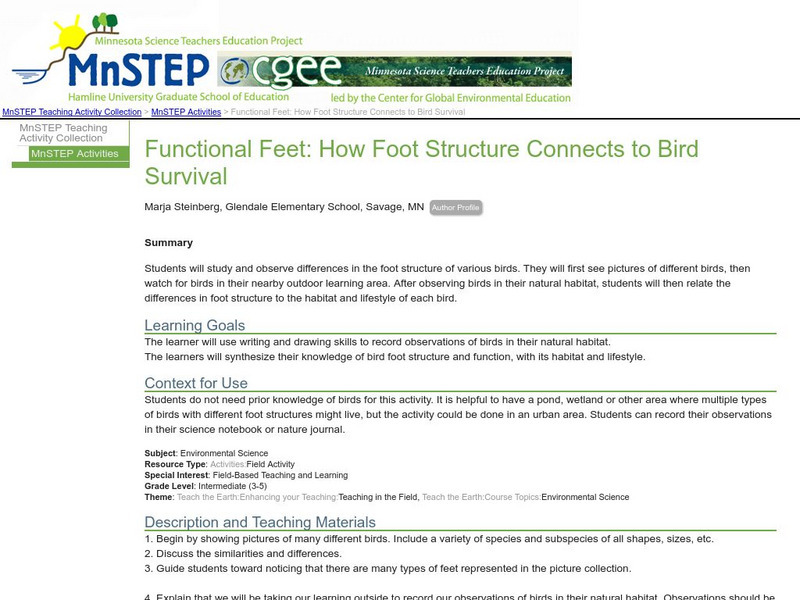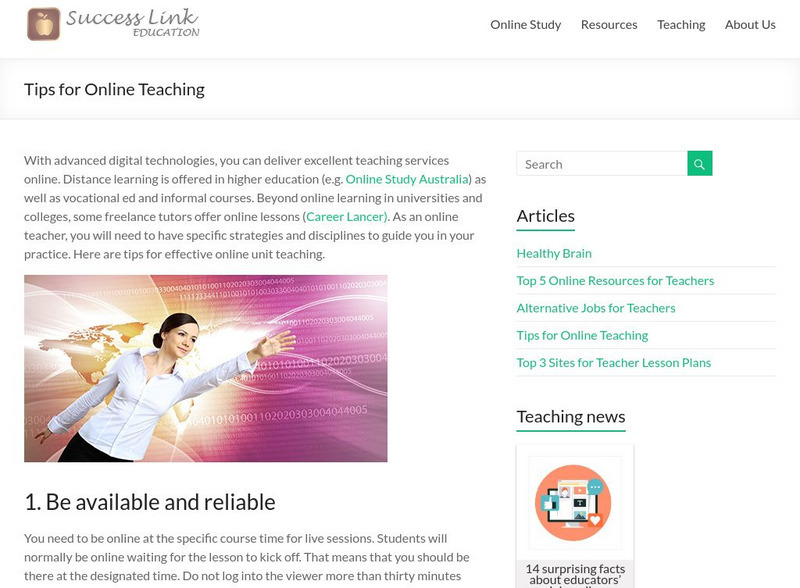Curated OER
Project Geode
Pupils predict the appearance of a geode's internal structure based on its mass and density. They form a hypothesis based on the data they collect. They also identify common minerals found in Illinois.
Curated OER
Our Solar System
Students study the Earth and Solar System through a variety of activities. They compile a coloring book show the characteristics of the Sun and nine planets.
Curated OER
Animal Classification Unit
Third graders study how to group animals by their physical characteristics. They examine how animals have adapted to have their needs met by the environment.
Curated OER
Comparing Apples and Oranges
Fifth graders, in groups, examine different types of apples and how they are different. They also taste the differences of each apple. They use this lesson to explore how to make observations.
Curated OER
Maintaining Body Heat
Students observe and compare heat loss in different objects with surface-to-volume ratios. They transfer this comparison to the physical characteristics of animals in their environment. They focus on how whales maintain their body heat.
E-learning for Kids
E Learning for Kids: Science: Scotland: How Can We Group Non Living Things Based on Characteristics/purposes?
Montgomery is a true Scot, and even wears a kilt. He works in his dad's store and needs help learning about materials.
PBS
Pbs Teachers: Madagascar: Leaping Lemurs
For this lesson, students use the activity of measuring their jumping distances to develop measurement and graphing skills. Although this activity is meant to be completed in conjunction with watching the PBS program, "Madagascar: A...
McGraw Hill
Glencoe Biology: Plant Evolution and Adaptations: Self Check Quiz
Five multiple-choice self checking quiz questions about plant evolution and adaptations.
Other
Chem Cases: Nutra Sweet: Physical and Chemical Properties
An in-depth look at the physical and chemical properties of aspartame, or NutraSweet.
National Geographic
National Geographic: To Build an Island
"This lesson gives students a basic overview of the geography of islands. They learn where islands are located throughout the world and will study two very different island groups (the Philippines and the British Isles) to illustrate the...
TeachEngineering
Teach Engineering: Touch and Discover
Students work in pairs or small groups to identify and categorize various objects. One student is blindfolded and the other student chooses five objects for their partner to identify. The blindfolded student has to describe and try to...
Science Education Resource Center at Carleton College
Serc: Functional Feet: How Foot Structure Connects to Bird Survival
Students study and observe differences in the foot structure of various birds by studying pictures, and then observing the birds themselves. After observing birds in their natural habitat, students then relate the differences in foot...
Success Link
Success Link: Forensic Chemistry
An interesting lesson that taps into students' interest in crime solving and forensics. Students examine glass fragments and their density to help them solve a crime.
PBS
Nh Pbs: Nature Works: American Kestrel
Can you name the smallest North American falcon? The American Kestrel is the answer to this question. Learn more about this fascinating bird of prey through this resource. Students will find information on the diet, habitat,...
Other
Switchzoo
Visit the strangest zoo around, and create new animals by combining different animal features.




